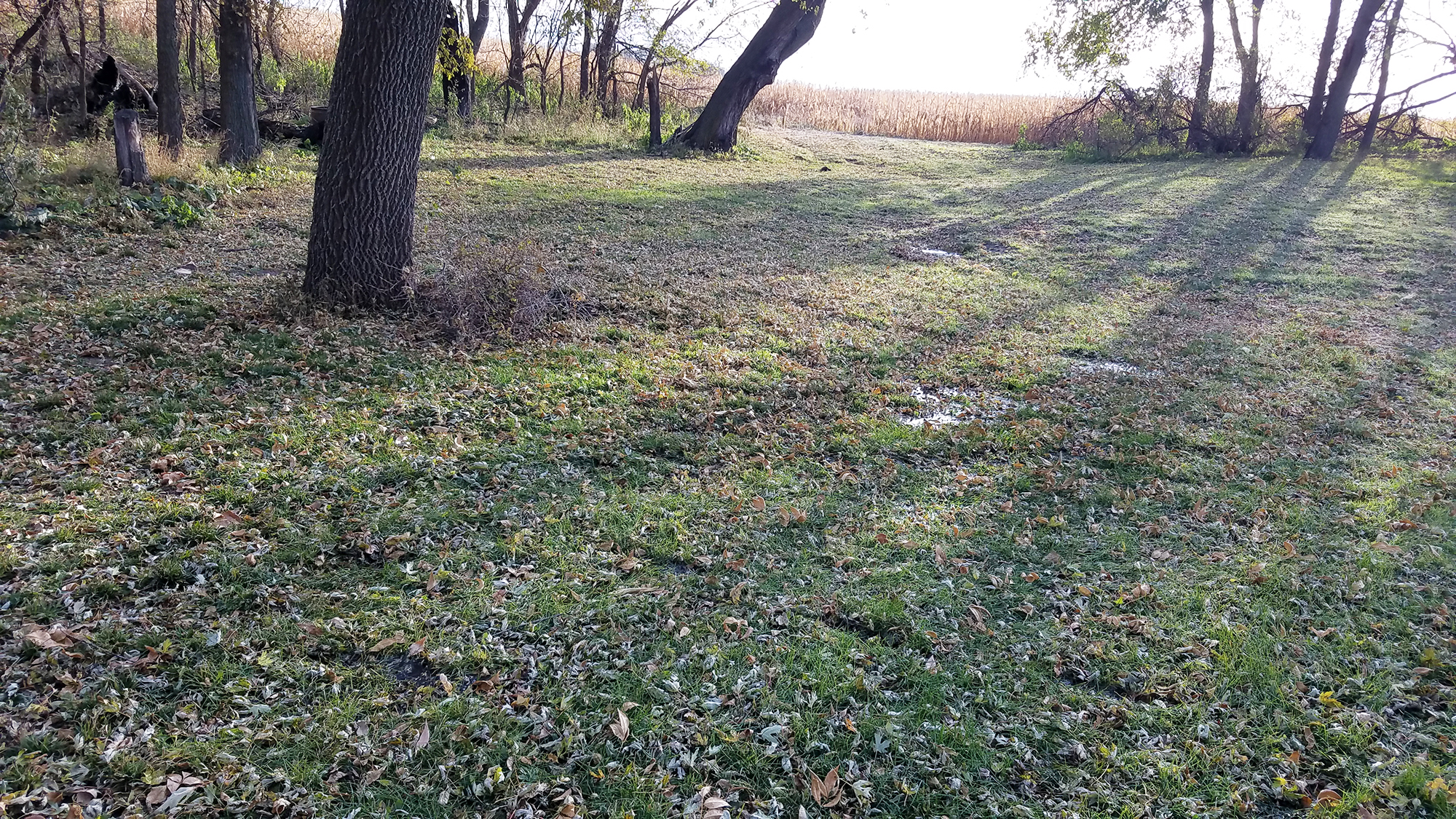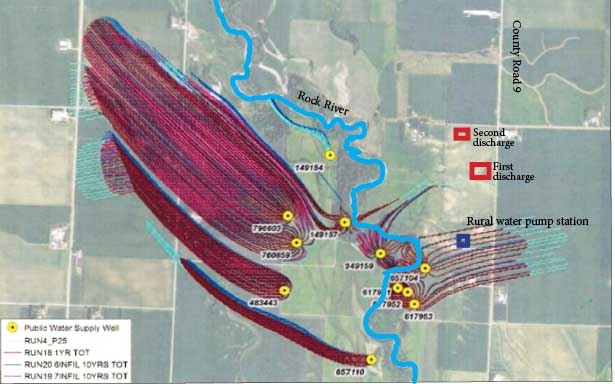 ,
, 
An investigation continues in the discharge of liquid manure in the Rock County Rural Water wellhead area.
The Minnesota Pollution Control Agency is currently evaluating the effects of the Oct. 28 incident in which Penning Hauling of Beaver Creek discharged as much as 12,000 gallons of hog manure in section 12 of Clinton Township.
“Our role is just to investigate and take the proper course of action,” said MPCA spokesperson Forrest Peterson.
An internal MPCA forum already convened and will meet again in a process that may take until early 2020 to complete, Peterson said.
MCPA action could vary from a letter of warning up to and including fines and/or civil penalties.
‘I don’t want them in Rock County’
County commissioners were briefed about the two Oct. 28 manure discharges at their regular monthly meeting Nov. 19.
Commissioners discussed if the county has any recourse in the current incident and how future incidents can be prevented.
Currently the county has no recourse in this particular incident.
Commercial manure applicators are licensed by the state Department of Agriculture with the MPCA investigating violations.
Including Penning Hauling, six unexpired licensed applicators operate in Rock County, according to the state Department of Agriculture website.
Douglas and Cody Penning, doing business as Penning Hauling, have two licensed applicators.
License renewals are completed on an annual basis and licensees are required to complete recertification through training or testing, according to the state CAWT licensing website
“They (applicators) are following all the rules — doing what is right — and then we let someone else come in the county who is not educated enough to know what the rules are, says they’re not, and makes two infractions within 24 hours,” said Commissioner Jody Reisch. “I don’t want them in Rock County.”
According to county attorney Jeff Haubrich, the county doesn’t have a role in the regulation or enforcement of commercial applicator infractions.
The local LMO, however, administers the applicator licensure test, which is an open book, computerized exam.
“You took the license. You know the rules. You do not dump your manure on the ground,” added Commissioner Gary Overgaard. “I don’t care if it was the first time or the last time, there is no excuse for that.”
The Oct. 28 incident
In the early morning hours, Penning Hauling was using a tractor to pull two 10,000-gallon tank manure applicators when the rig became stuck in soft ground near a waterway, located on a hill north of the rural water pump station.
To lessen the weight in the large tanks and pull the tanks free from the mud, the applicator discharged an estimated 8,000 to 10,000 gallons of liquid hog manure onto the ground.
The manure ran down a ravine and pooled in a cornfield owned by Tim and Maggie Fick.
The area is located in the drinking water supply area for Rock County Rural Water customers.
The discharge occurred on the east side of the Rock River. The closest rural water wells are located on the river’s west side.
Doug Bos is the feedlot officer with Rock County Land Management Office, which was notified of the discharge.
“By the time we got to work, it had already happened,” he said. “This is not allowed, you find another way to empty it — put it into another tanker, whatever it takes — he (Penning) apologized and said the guy running it made a bad choice.”
The evening of Oct. 28, Penning was operating the rig in the same 80-acre field owned by Gregg Drost, but further north on the same parcel near 61st Street when the rig became stuck in the field again.
The second discharge allowed 1,500 to 2,000 gallons of liquid manure to run downhill and pool in the backyard of the Fick acreage, about 30 feet from the couple’s home.
“It was an action that they knew they were not supposed to do,” Bos said.
The area around the home has since been cleaned.
As of Nov. 20, cleanup of the manure spill in the Fick cornfield has not been completed.
No effect on drinking water … yet
None of the manure flowed directly into the draw zones of Rural Water’s 11 wells, but water from those wells is being monitored for potential contaminants.
“Minnesota Department of Health has developed ground water flow maps that show this area probably will not directly affect the east side wells but we really don’t know what happens underground since these maps are only based on computer models,” Bos said. “This (discharge) area still can affect the wells due to overland flow heading towards the well area.”
Rural Water manager Ryan Holtz said the wells are regularly monitored and tested, and so far the discharge is not resulting in any changes in normal operations.
“It’s extremely disappointing — with all the work we have done in this area,” Holtz said.
For the past five years LMO has worked with landowners and farm operators surrounding the Rural Water wellhead area to use different farming practices to lessen nitrate levels in selected wells.
Rural Water has 775 connections on the system owned and managed by the county.
“Doug (Bos) and his team have worked really hard to try to get these guys to do different application processes like side dressing, doing (applications) multiple times of the year instead of all at once — they are trying to limit the (nitrogen) exposure,” said County Administrator Kyle Oldre. “So something like this is a real step backward for us.”
Any water contamination is reported to the state Department of Health.
Commissioners took no action Nov. 19 in potential ordinance changes in response to the Oct. 28 manure discharge.


